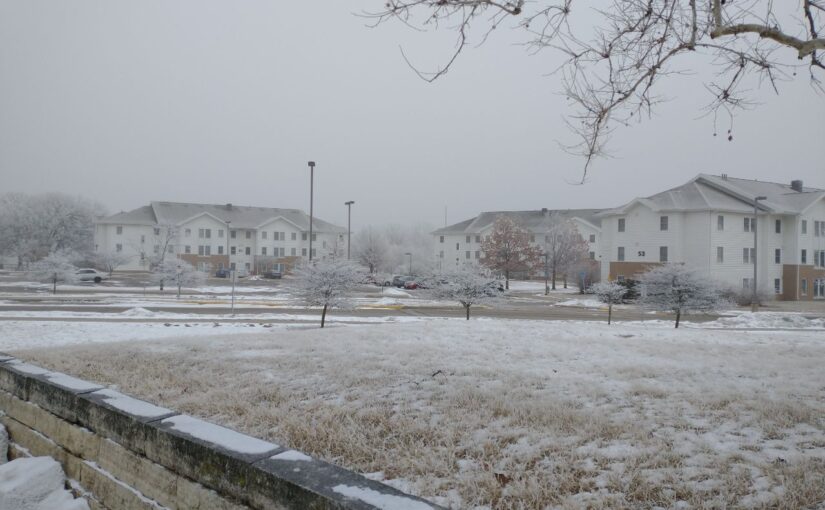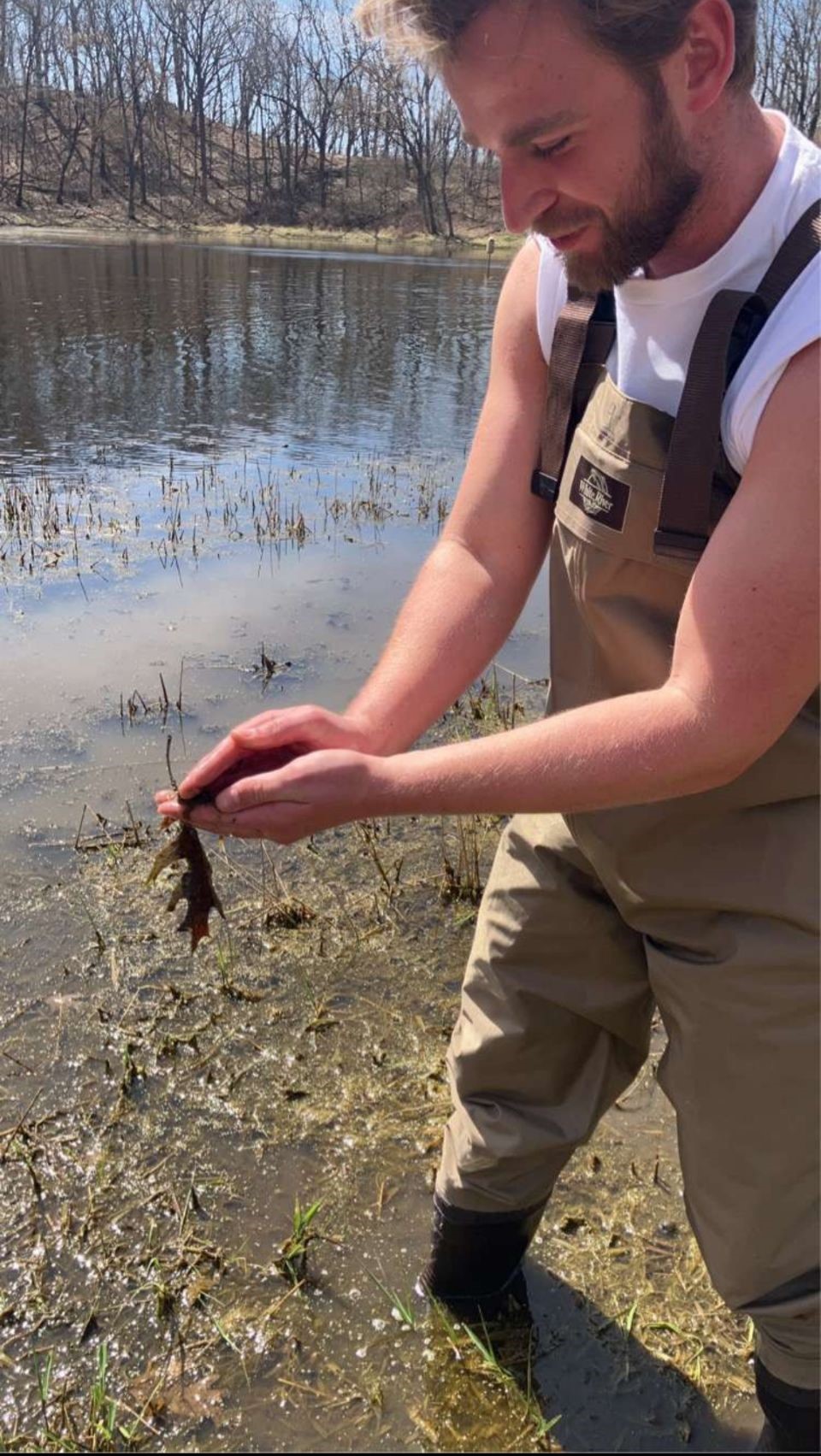Field of study in Wageningen: Bsc Animal Sciences
Study period exchange: 09/01/2023 – 11/05/2023
Country (exchange): USA
City (exchange): Ames, Iowa
University (exchange): Iowa State University
Faculty (exchange): College of Agriculture and Life Sciences
2. Motivation for exchange
Why did you choose to go on study exchange?
My first plans for going on exchange were cancelled due to Covid-19 in 2021, but I still wanted to go so the year after I resubmitted all my paperwork and got submitted into the same university as before. I really wanted to study abroad because it is probably the only time in your life that you can just go and leave everything behind in the Netherlands and go live halfway across the globe.
What is the reason you chose for this country/university?
My preference was to go to a country where they spoke English, so that there would be less of a language barrier between me and the locals. America has always somewhat interested me after I visited New York City with my dad a few years ago, so I was eager to go and really live the normal life there, not just being a tourist. Iowa State University was credited as having a great Animal Science programme, so the decision for the university was easy for me.

3. Accessibility to reach destination
Do you have any tips to reach your exchange destination?
You would think you can only get to America by plane, but I have heard of some exchange students that are going back to Europe with a cruise ship! So, if you want to end your exchange semester with a weeklong holiday, this could be an option, but if I don’t think this would be a great option for the arrival trip. Also, if you want to see some more of the USA, there is a decent train connection between the cities Chicago, Washington, Philadelphia, and New York, perfect to go city tripping after your exchange. Just hitch a ride to Chicago and take some trains to travel around. If you book more than a month in advance you will be able to find tickets for less than $20 per train ride!
4. University and studying
Could you provide some general information about the followed courses?

How is the study formalized
Sometimes the lectures would cover Dutch high school-level biology topics, but these were often brief to get everyone up to speed on the topics that would be addressed later. Your grade can consist of a lot of different components: attendance in class, weekly online quizzes, homework assignments, exams, Kahoot-like quizzes in class, extra credit assignments and active class participation. This varies highly per class, so don’t be afraid to walk up to one of your teachers after class and ask them to explain this to you in extra detail: they were all very keen to explain this to exchange students new to this system. The non-exam credits usually make up more than 60% of your final grade, so if you put the work in for these assignments on a weekly basis it is almost impossible to fail a class. Therefore it felt to me like the academic level was somewhat lower than in Wageningen: most of your grade is based on how well you can reproduce information while you have access to classmates, the internet, your notes and your book. Even if you would get an F (<60%) on all your exams, you could probably still pass classes with a B (+-80%). Some classes also offer Supplemental Instruction (SI), which consists of a student that passed the class in a previous semester and goes over the material of the last lecture(s) with anyone that shows up to that class: it is on a walk-in basis, so you can decide to go or not whenever you want. Usually only a small percentage of the people show up, so it is like having your own personal tutor for a few hours per week for free. This really helped me with some of the harder courses and I would highly recommend it.
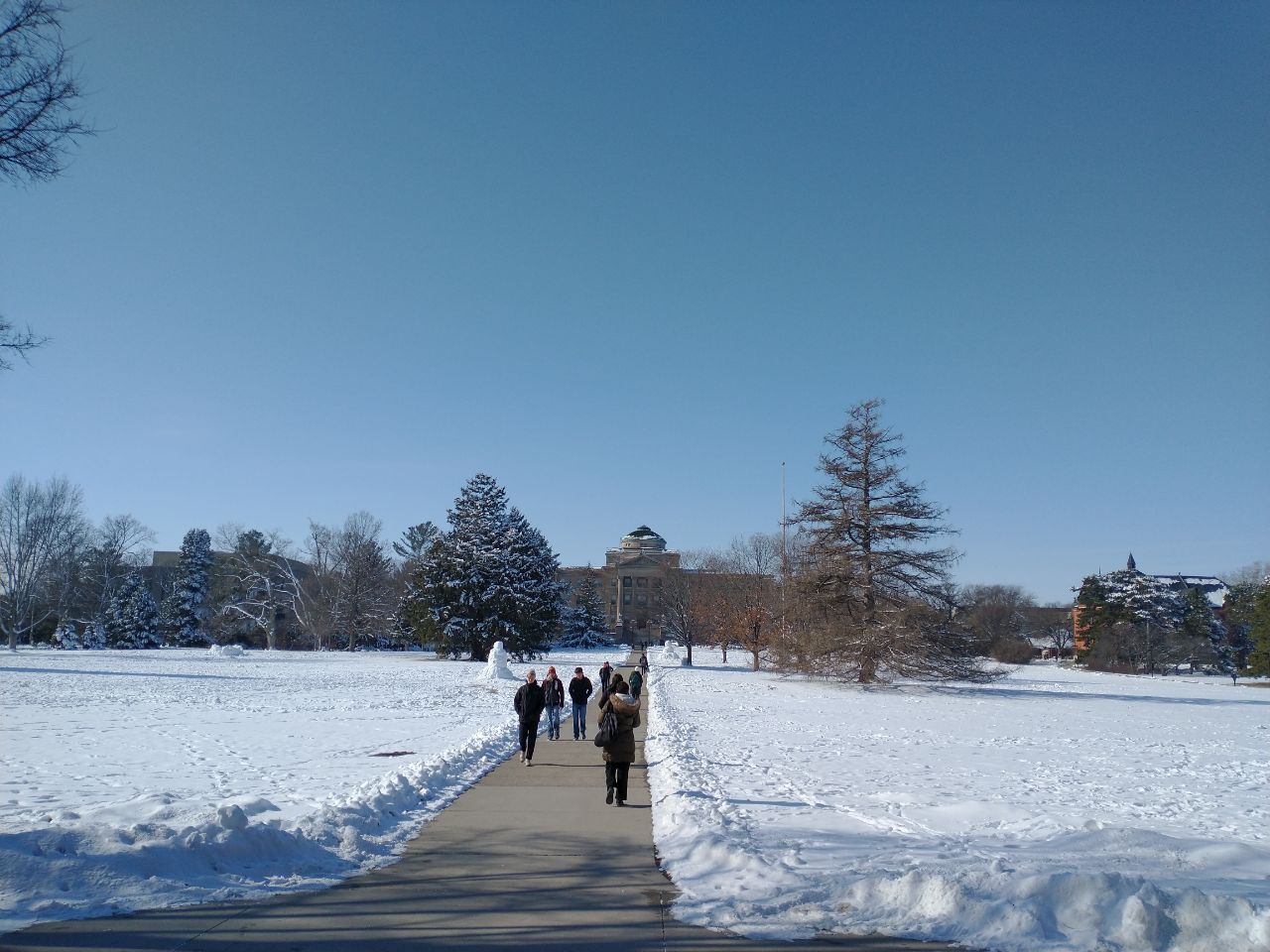
What is the culture of the university?
The teachers take a very great interest in the different students in their classes: even though they could have more 100 students in their classes they often had personal interactions with their students. For example, teachers would hand out graded exams and would not need to ask the name of the students that came to pick them up. I even got a hug from one of my teachers after my final exam, while I have barely spoken to most of my lecturers in Wageningen. Local students were very interested in exchange students in general: most of them have never left the States and everyone has a dream-destination in Europe, so they were mostly very interested in what we had to talk about our home countries. And the stereotype about Midwestern-people is true: they are all very kind! Everyone will offer you a lift to McDonalds, ask if you want to go out with them or even invite you to dinner with their family. All in all it felt more like a school than university, in the sense that there were more interactions with other students and teachers and there was a more personal approach to classes.
What does the university offer the student additionally?
You will most likely live on campus, where the facilities are provided by the university. This can also include a meal-plan, where you can choose to eat at all-you-can-eat buffets, have some take-out or order a simple meal at one of many locations on campus. It is somewhat pricy, around $11 per meal, but since groceries are crazy expensive in the USA you are almost saving money with a meal plan if you plan on eating on-campus a lot. There are also plenty of sport facilities on campus, which include multiple gyms, pools and outdoor fields, all for free. There are free busses driving around campus very frequently (multiple busses stopped in front of my house every hour) and some of them will even take you to the somewhat further-out locations like the supermarkets or the mall.
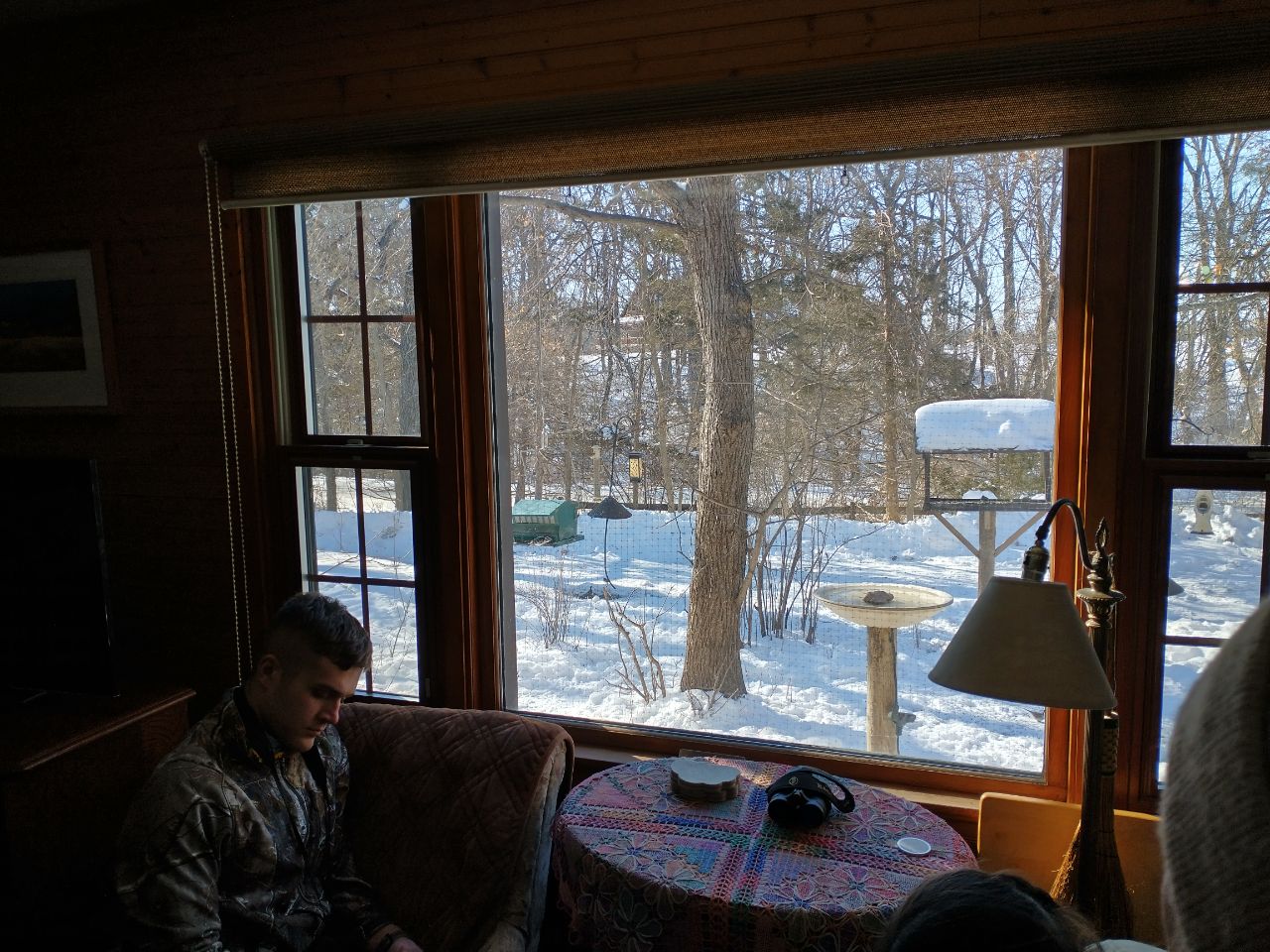
5. Housing-travelling-living
What are the possibilities for housing?
Most people live on-campus, with a lot of different styles like in a dorm with a shared bedroom, single dorm, or on-campus apartments with 4 people (each with their own bedroom, or also shared). You can also live off-campus, but you have to figure that out all for yourself via e.g. Facebook.
What is the culture of the country like?
People in Iowa are very friendly and always ready to help you out, both students, teachers and people working in stores/restaurants. There is a pretty big tipping culture in the USA, so they can be somewhat grumpy if you don’t tip, but that’s up to you.
Could you give a general price indication of the place of residence compared to living in Wageningen?
You can expect to pay $500 in rent each month.

Could you give some information about public transport infrastructure?
Public transport in Ames itself is free, but you can’t leave the town with public transportation. You can rent cars but expect to pay around $250 dollars for a normal car for per weekend. Ubers are rare in Ames, usually only found in the weekends, and can bring you from the bars to the apartments (around a 5-minute drive) for $8. Don’t be afraid to ask local students for a lift, they all have car and gas is very cheap so they don’t mind driving at all: it’s part of their culture, even if it means driving you back and forth for over an hour.
6. Free time
What are must-sees in the area?
Des Moines is a very nice city, but other than that Iowa is a pretty boring state. You rent a car and go to Minneapolis or Chicago for a weekend, which are both very beautiful and a lot of fun, or you can even travel further during e.g. spring break to Mexico or one of the coasts. Start planning ahead, since flights and train tickets will be significantly cheaper when booked well in advance.
What does not appear in the travel guide, but is worth a visit?
Go knock on some doors of fraternities/sororities and see if they invite you in for a party! You might get a few no’s, but they are never unfriendly and if they do let you in you get to see some really cool American student culture that you really can’t get in the Netherlands.
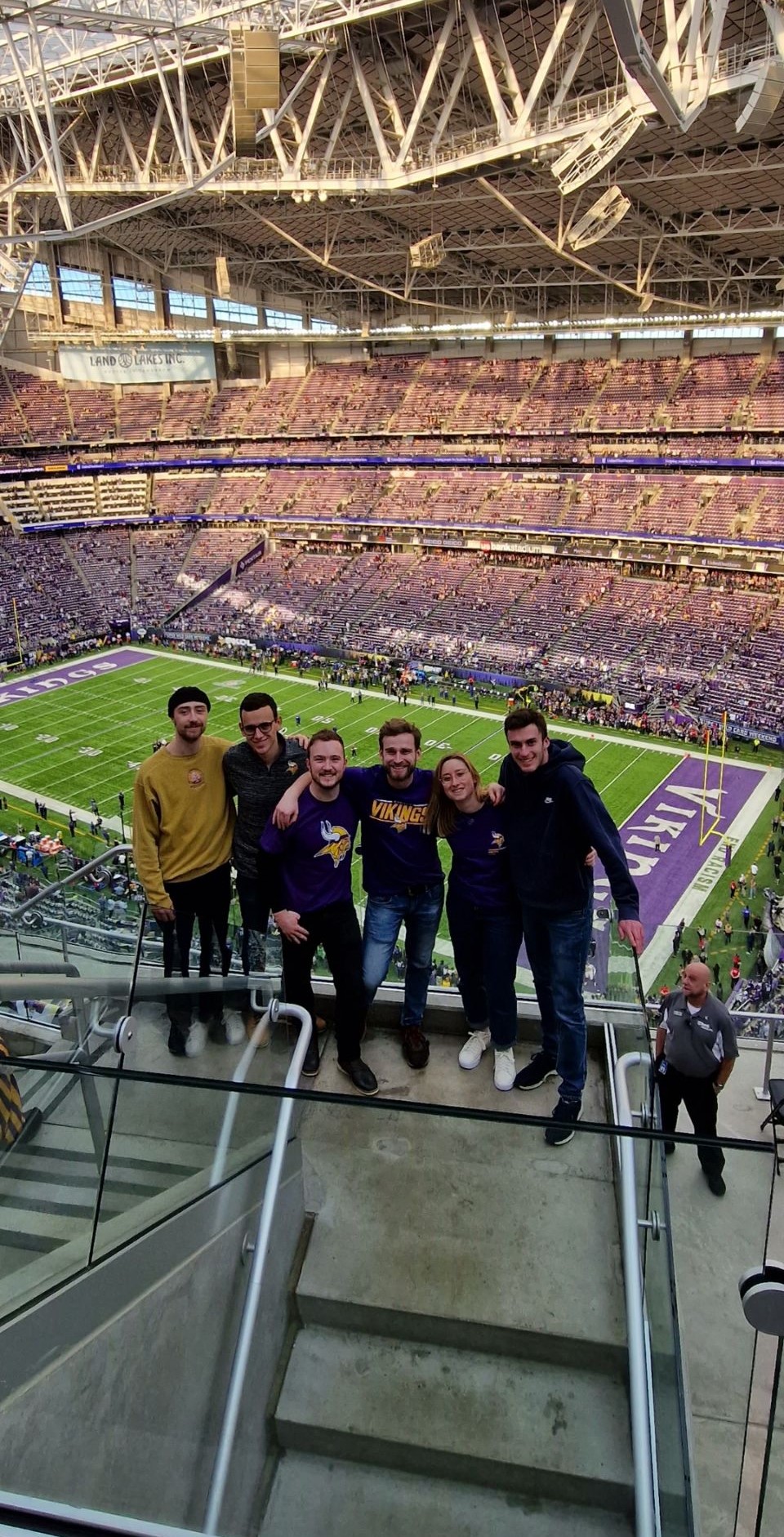
Do you have general tips and tricks about leisure time?
Try not to eat out too much: its expensive and usually not that good, let alone be healthy. Also, the dining halls are convenient, but you will be better off (financially and weight-wise) to just get some pots and pans from Walmart and cook every now and again. The party-scene in Ames is hard to miss: Welch Avenue is right across the street from campus, and all the bars are located on this street so every Thursday through Saturday the street is packed with students. They don’t have any place to hang your coat, so be aware of that. Some students got their jackets stolen because they just dropped them somewhere, so we ended up just not bringing them anymore and being a bit cold on the way back.
7. Challenges & best moment abroad
What was a challenge you have experienced?
Some of my classes were only lectures, so I found it hard to connect with the local students in these classes. In classes with more interaction, like excursions or groupwork, I found myself making friends very easily, but trying to chat up your neighbour during a lecture in progress can feel weird. I also didn’t fully understand the credit system, with extra credit and all the assignments and quizzes, but you can just walk up to teachers and they will take time to explain it. They understand that it can be difficult.
What was your best memory abroad?
Spring break! All the exchange students (12 in total, but still) went to Cancun (Mexico) and Chicago for this week, and it was one of the best holidays I’ve ever had. The combination of beaches/parties in Cancun and the city trip in Chicago made it the perfect holiday trip.
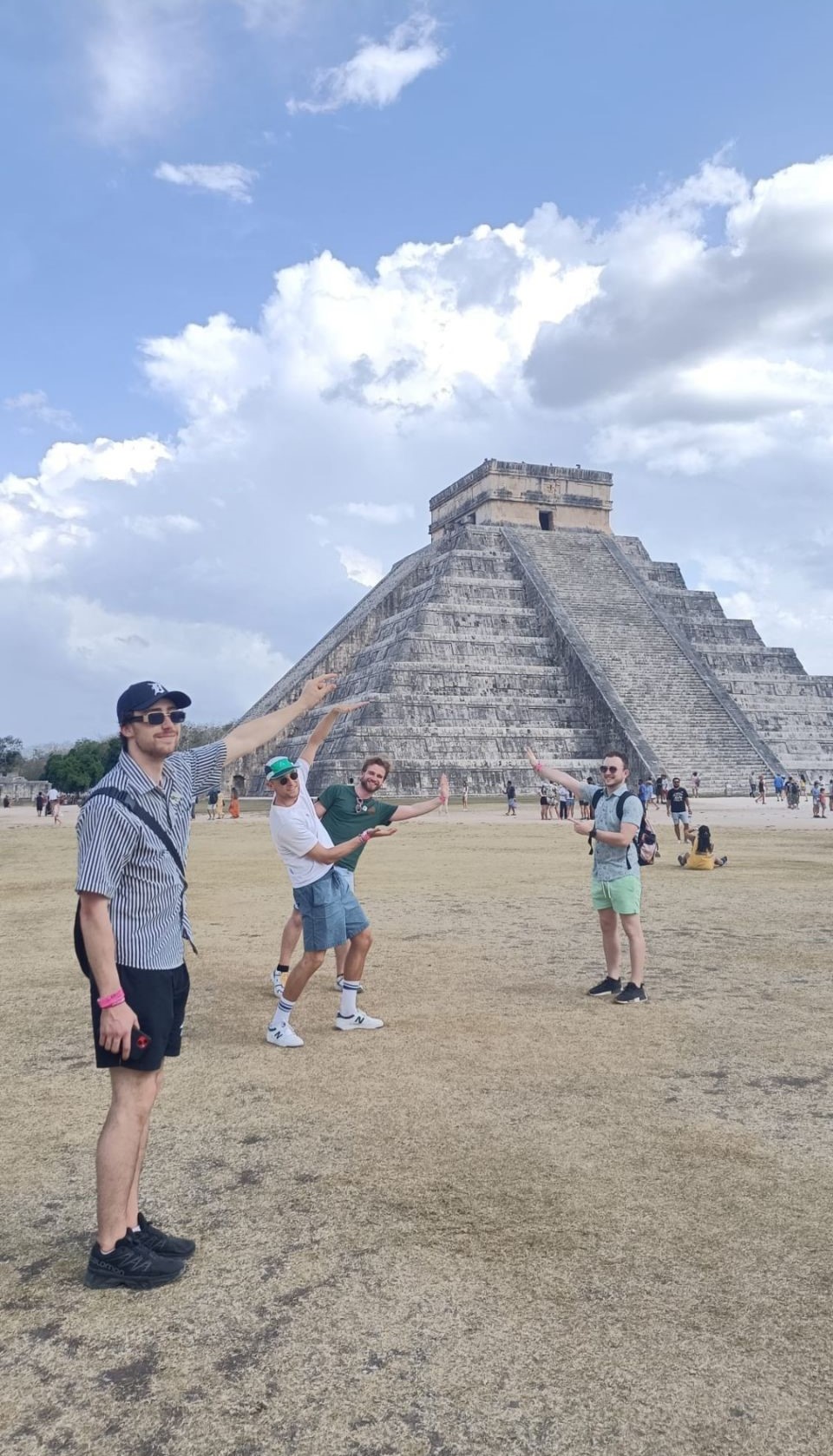
8. Contact Details
Would you like to ask Mathijs more questions about his exchange?
Send him a mail: mathijsvdm25@gmail.com

